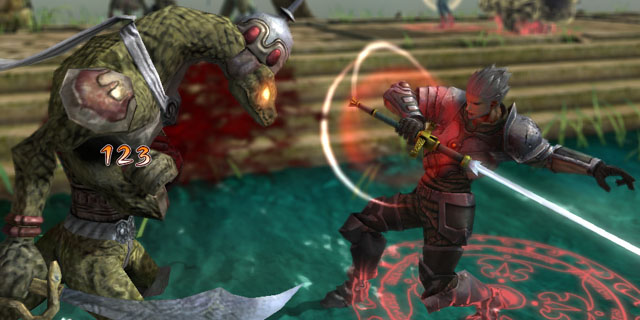
When you first encounter Natural Doctrine, it appears to be a hybrid of Valkyria Chronicles and a crazy person’s conspiracy wall. As you play more, the symbology and walls of tied-together information begin to be somewhat more legible, but the metaphor becomes ever stronger: Natural Doctrine searches frantically for answers to how to make a good strategy RPG and overlays a web of complicated systems to try to make that happen, but ultimately it’ll just drive you mad.
Developed by Kadokawa Game Studio and published in the U.S. by NIS America, Natural Doctrine follows a band of mercenaries as they raid caves and survive in a desolate world with a tiny remaining human population. The story and aesthetics feel like what Japanese people believe Western fantasy to be, in the same vein of co-opted titles like Wizardry. There’s an impersonal, stat-based take on encounters that feels inspired by Dungeons & Dragons, and everything is much darker and more mature than what you’d typically expect from a JRPG.
The game also doesn’t seem to do much in the way of world-building, using a simple map-based menu to enter battlefields, most of which are dark gray caves. It’s unfortunate, since Natural Doctrine seems to be going for a story that’s much less overdone than its peers: one of doing bad things to survive and questioning your motivations at every turn. The “magic” source here, Pluton, is a limited resource that must be collected, and it mirrors the struggle of modern nations fighting over fossil fuels or companies destroying environments to get to needed minerals.
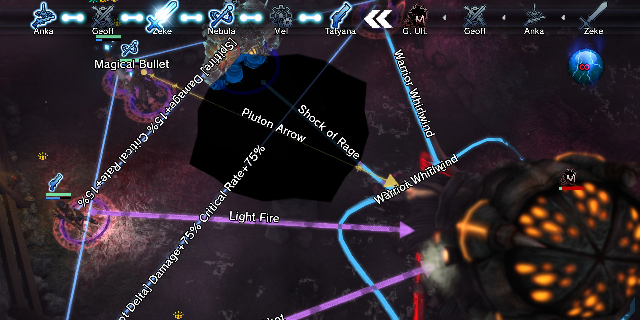
Given that the game doesn’t really contain anything else, the battles are clearly where the game lives and dies. Well, mostly just dies, over and over again. Natural Doctrine is difficult, and not in a challenging or complex way, but really just a punishing one. The system itself is difficult to explain (and the game really doesn’t do a very good job, even with lots of tutorials and hours of trial-and-error), but it basically takes a free-movement system like Valkyria Chronicles and sets movement into large-block areas, letting you move anywhere you want as long as you’re two or fewer blocks away from your destination. There’s not a cover system like XCOM, but you can position guarding fighters in front of weaker party members to protect them somewhat, and the combo attack system rewards you for spreading out your attackers as far as you can.
When you move and attack, all of the things that are happening are represented by lines with words on them. This is where the conspiracy-wall look comes in: everything will be crossing and moving and different colors, and you’ll need to frantically look around at all three camera angles to make sure you’re not missing something. It really doesn’t seem possible that this is the most efficient way to present this information; a move from waves of text to something more subtle and symbolic could have made things less overwhelming.
Where the game truly breaks down is in its link system. When you strike an opponent, your other mercenaries can chain attacks, moving into position and also taking on foes. This would be fine — if a bit unbalanced and prone to showing you walls of battle result text — if it weren’t for the fact that the enemy gets to do the exact same thing. Every turn, you’ll be ambushed by enemies larger in number and just as strong, and sometimes two or three times between your own attacks. And they’ll pick out your weakest fighter and focus attacks until he or she is dead, which is an immediate Game Over and causes you to lose all of your progress on the often-hour-long maps.
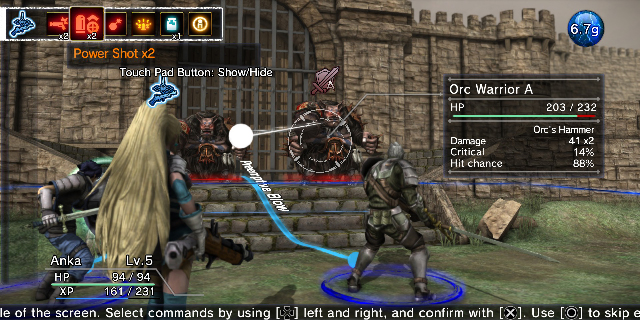
Even this would be manageable, if the balance of the game were better. After all, XCOM and Fire Emblem similarly thrive on this desire for a perfect run. What breaks Natural Doctrine is that its tactical positioning just disappears the moment you strike the enemy, as your attacking forces advance into the next square and stop in seemingly-random, definitely-not-in-cover locations, often with your ranged fighters placed up front and ready to die. It’s a problem not easily solved by the game’s settings; while we played mostly on the default Normal difficulty, bumping it down to Easy didn’t help with the group-tackling issue that pops up at any moment and erases all your progress.
If you can get through the sheer frustration of Natural Doctrine‘s battles, you may find enjoyment in shaping your characters to your liking. The game implements a skill tree system for each party member, and there’s real freedom in deciding what each can do. You generally have many more options than you can select, so specialization is key; sticking to one weapon type and augmenting it with survival abilities and a special skill or two is probably the way to go. Given how difficult it is to survive in the game, you may be tempted to focus on durable armored units, but doing that means you’ll have to advance into harm’s way more often to reach foes, making it largely a wash.
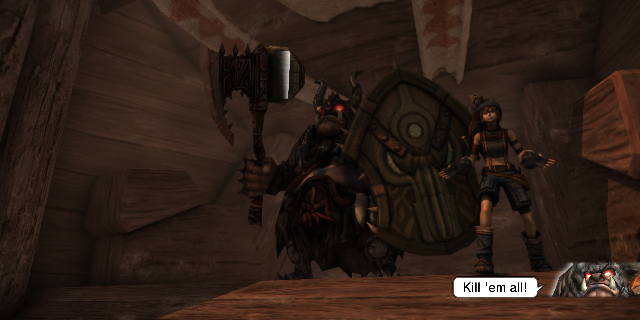
Natural Doctrine has gained some notoriety for its early appearance on the PS4, though it doesn’t do much to take advantage of the platform. That’s because it supports Cross-Play and Cross-Save with the PS3 and Vita versions, and thus can’t do much to change things up. (We’re seeing a lot of that lately, aren’t we?) The good news is that it’s a solid release on all three platforms. The Vita edition holds up well and looks good on the small screen, though the cluttered display can be a hindrance, and the PS4’s real advantage lies in its near-instantaneous load times. Still, if you just have a PS3 and want to pick up the game, you’re not getting much of a lesser experience. The Cross-Save function works like a charm, but without Cross-Buy, you probably won’t be picking up multiple editions.
No matter which platform you play on, you’ll likely get tired of the game’s recycled environments. The developers had no qualms re-using assets, much like a dungeon master would in a D&D campaign, choosing instead to reconfigure these blocks over and over into different environments. That’s fine enough for most games, but given how many times the mechanics make you repeat each stage, it would be nice to fight somewhere fresh and different each time.
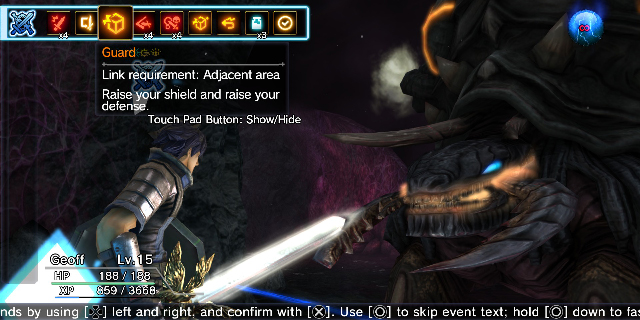
What’s most heartbreaking about Natural Doctrine is just how close, at times, it comes to being the compelling strategy title we need it to be. Mechanical restraint, a better difficulty curve or simply scrapping the link attack system could have done wonders for it, and committing to one lead platform could have allowed it to spend more development time refining the gameplay and less time making sure it worked on three different systems at the same time. At best, it’s a game for players who like incredibly punishing titles, but even though it’s not a compelling package, there are fresh ideas here that we’d love to see tried again with more attention and care.
Pros: Interesting premise, cross-play and cross-save functions
Cons: Difficult and complicated battles, frustrating controls and mechanics



















